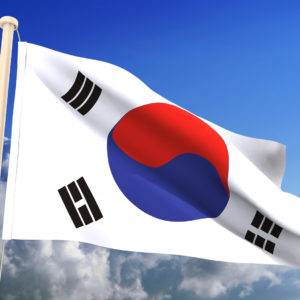SEOUL–It’s tempting to play on the surname of South Korea’s new president, Moon Jae-in. There’s “honeymoon,” and then there’s “moonshine,” a slang term that came into use in the United States in the 19th century for whiskey that was illegally distilled, often at night, by the light of the moon.
Moon is now enjoying his honeymoon as president of the Republic of Korea. He’s reached high levels in popularity polls as he appoints aides whose credentials often include firebrand opposition to conservative leaders and policies. That’s to be expected considering Moon’s record as a liberal activist and advocate of dialogue with North Korea.
As North Korea’s leader Kim Jong-un orders weekly missile shots, however, how long will the honeymoon last? The question assumes critical importance in the wake of the North’s latest test of a Scud missile that flew early 300 miles before landing inside Japan’s exclusive economic zone in the Sea of Japan.
As Moon called his national security council, attempting to figure out a proper response while looking for negotiations with the North, the problem of Korean presidents seemed all too clear. They have an extraordinary record of plunging into disrepute if not disgrace before the end of their five-year terms, facing outbursts of criticism before finally leaving their Blue House residence and office complex.
Park Geun-hye, ousted in April nearly a year before her normal term would have expired, is only the latest in a long line of victims of angry accusations and retribution. Roh Tae-woo, the first president elected under the 1987 constitution, was convicted of corruption and involvement in the Gwangju massacre of May 1980 while serving as a general in command of a division under the dictatorial Chun Doo-hwan, also convicted and sentenced to death. (Both were eventually pardoned and released in the name of national harmony.)
Kim Dae-jung, elected president in 1997 in an upset over the conservative candidate, is remembered for his failed Sunshine policy of reconciliation with North Korea but was revealed later to have channeled hundreds of millions of dollars into North Korean coffers to bring about his June 2000 summit with Kim Jong-un’s father, Kim Jong-il. Six months later, he achieved his longtime goal of winning the Nobel Peace Prize.
Can Moon, who would like nothing better than to bask in a fresh burst of Sunshine, escape the calumny that befalls Korean presidents? As Moon’s honeymoon ends, will people discover they’ve gotten intoxicated on moonshine? Will the joy of moonshine fade, leaving a hangover of charges and counter-charges, chagrin and disappointment?
Korean history indicates that nobody should be too optimistic after the initial excitement wears off. The revelry of moonshine may turn into misery sooner than expected as long as Kim Jong-un orders missile tests and possibly a sixth nuclear test.
North Korea has not yet begun insulting Moon with statements similar to its denunciations of Park but has criticized signs of continued North-South “confrontation” while arguing the tests are needed to defend both Koreas. North Korea’s position is sure to harden after Moon sees President Donald Trump in Washington, coordinating on a policy that’s likely to mingle incentives with threats.
There is, however, little room for optimism. The fact that Kim persists in missile tests means he’s simply not going to compromise. How, then, will Moon want to respond to North Korea’s continued challenge?
The betting is that he will look for ways to placate the North, perhaps by reopening the Gaeseong Industrial Complex, just inside North Korea 40 miles north of Seoul. He might even try to reopen tours to the tourist magnet of Mount Geumgang, a few miles above the North-South line on the east side of the Korean peninsula, nine years after a South Korean woman was killed by a North Korean soldier while wandering outside the tourist zone.
Moon may show his desire for reconciliation in other ways such as authorizing more visits to North Korea. And he might want to resume shipments of much-needed rice and fertilizer that South Korea donated to the North during the decade of the Sunshine policy.
While North Korea is test-firing missiles, however, Moon may have to give up any notion of telling Trump to pull out the controversial THAAD counter-missile battery implanted on a golf course southeast of Seoul. In a moonshine hangover, THAAD is likely to stay where it is as a reminder of the need to defend the South against North Korea’s unending tests and threats.

